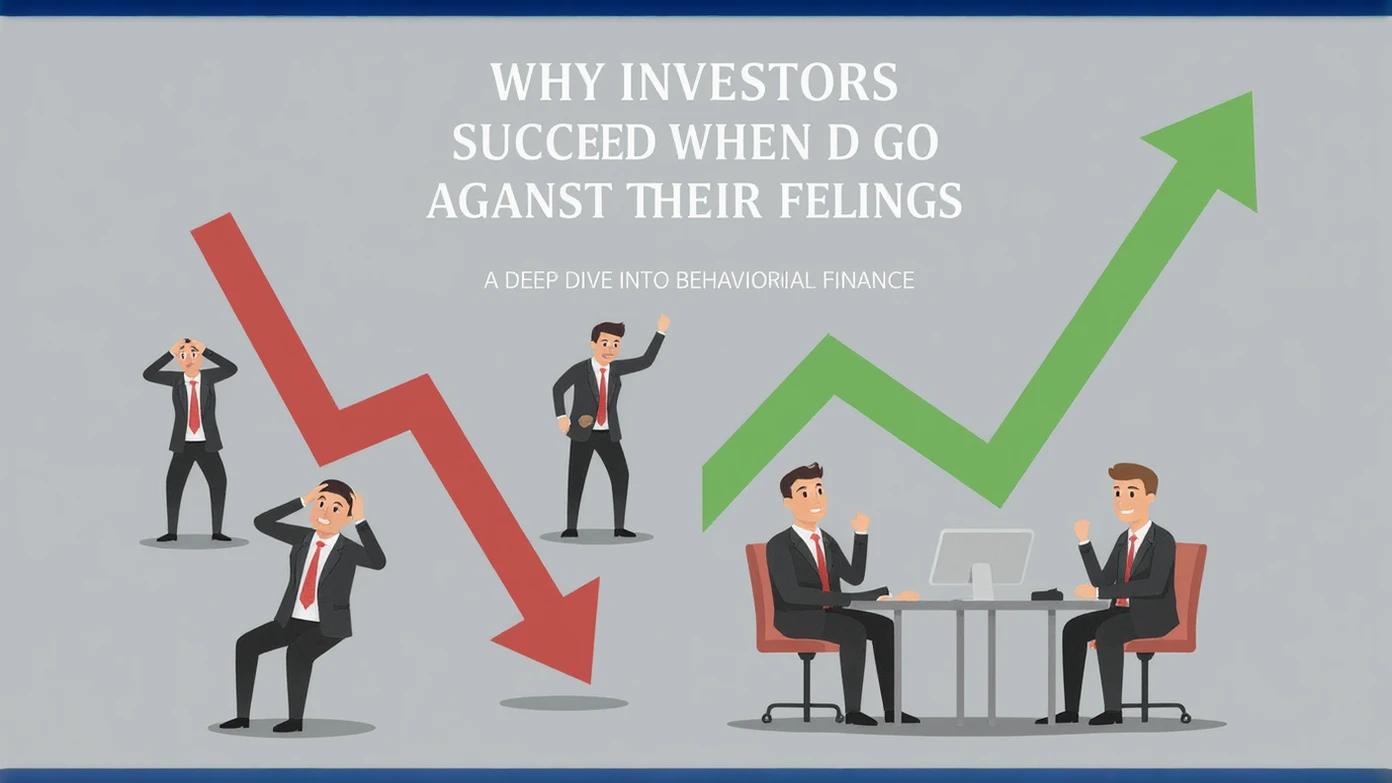Author: Aditya Pareek | EQMint | Opinion News
Stock market investing is often viewed as a numbers-driven pursuit — one that revolves around balance sheets, ratios, valuations, and forecasts. But seasoned investors have long insisted that psychology plays an equally powerful role in determining investment outcomes. Behavioural finance, a field that studies how emotions and cognitive biases influence financial decisions, has increasingly become central to understanding market behaviour, especially during times of volatility.
In a recent conversation featured in the financial press, an experienced investment expert shared deep insights into the emotional side of investing and how most individuals unknowingly allow their instincts, fears, and impulses to dictate decisions. According to him, the paradox of successful investing is simple: the best time to buy stocks is often when you emotionally don’t feel like buying.
Why Stock Markets Move the Way They Do
Markets are built on millions of individual decisions. Traditional finance assumes all investors are rational, but real life operates differently. Behavioural finance explains that individuals often react emotionally — chasing rallies due to greed or exiting prematurely due to fear. For example, when a stock is falling sharply, most people avoid buying because of discomfort, even if the valuation becomes attractive. Conversely, during bull runs, many investors jump in too late because they don’t want to feel left out.
The expert compares market behaviour to everyday human instincts. If someone drops ₹5, you may not pick it up because others will notice. But if someone drops ₹500, instinctively you reach for it — even though behavioural logic says both decisions should be rational, the emotional response changes based on perceived value. Similarly, investors react differently to market situations depending on how emotionally charged the moment feels.
Integrating Behavioural Insights into Investing
Investors often blame wrong stock picks for poor returns. But the truth is more complex. Even good stocks can deliver bad results if bought or sold at the wrong time. Behavioural finance helps investors understand why they make certain decisions and how to build discipline around buying and selling.
The expert notes that no fund manager or retail investor can avoid mistakes entirely. Markets move in cycles — accumulation, growth, euphoria, correction, recovery — and every investor goes through these phases. The real edge lies not in timing each cycle but in developing a philosophy that prevents emotionally driven decisions. Long-term wealth, he argues, is built not by reacting to every market noise but by staying focused on intrinsic value and patience.
Avoiding IPO Frenzy Through Rational Thinking
One of the strongest viewpoints expressed in the discussion relates to initial public offerings (IPOs). The expert questions why IPOs appear only during strong markets. His answer: because companies and promoters know that in good markets, investors are willing to pay any price. He argues that IPOs rarely come at attractive valuations because optimism is high, demand is strong, and pricing favours the seller, not the buyer.
He suggests that the absence of IPOs during weak markets is itself a signal — when markets fall, very few companies want to list, even though valuations would logically be more attractive for long-term investors. This behavioural disconnect shows how market cycles influence investor decision-making.
Are Markets Expensive Right Now?
When asked whether markets today look expensive, the expert gives a nuanced view. He emphasises that markets are never uniformly cheap or expensive — pockets of value always exist. Instead of looking at the market as one large entity, investors should examine individual businesses. Some companies may be overvalued due to hype, while others remain reasonably priced despite strong fundamentals.
He states that value emerges when fear dominates. In phases when investors are nervous, many solid companies trade at attractive valuations simply because sentiment is weak. Conversely, during euphoric phases, even mediocre companies command high prices. Understanding this emotional cycle helps investors identify genuine opportunities.
What Investors Should Actually Focus On
The expert’s core message is simple: investing success comes from discipline, patience, and resisting emotional impulses. Markets reward those who stay invested, follow a proven philosophy, and avoid short-term distractions. Chasing momentum, reacting to news headlines, or constantly checking stock prices often leads to poor decisions because emotions take control.
He also highlights the importance of sticking to asset allocation, avoiding excessive risk, and maintaining liquidity for opportunities that arise during downturns. A successful investor, he believes, is someone who can detach temporary market noise from long-term value creation.
Conclusion
The discussion offers a refreshing reminder that investing is as much about the mind as it is about money. Behavioural finance teaches that fear, greed, impatience, and overconfidence can be powerful forces shaping market outcomes. Recognizing these biases — and working consciously to overcome them — is key to achieving consistent long-term returns.
Whether markets are booming or correcting, investors who understand their emotions and act contrary to panic-driven instincts stand to benefit the most. As the expert aptly puts it, the best buying opportunities often appear when you feel least comfortable investing — a truth that echoes through decades of market history.
For more such news and information visit EQMint.
Disclaimer: This article is based on information available from public sources. It has not been reported by EQMint journalists. EQMint has compiled and presented the content for informational purposes only and does not guarantee its accuracy or completeness. Readers are advised to verify details independently before relying on them.









